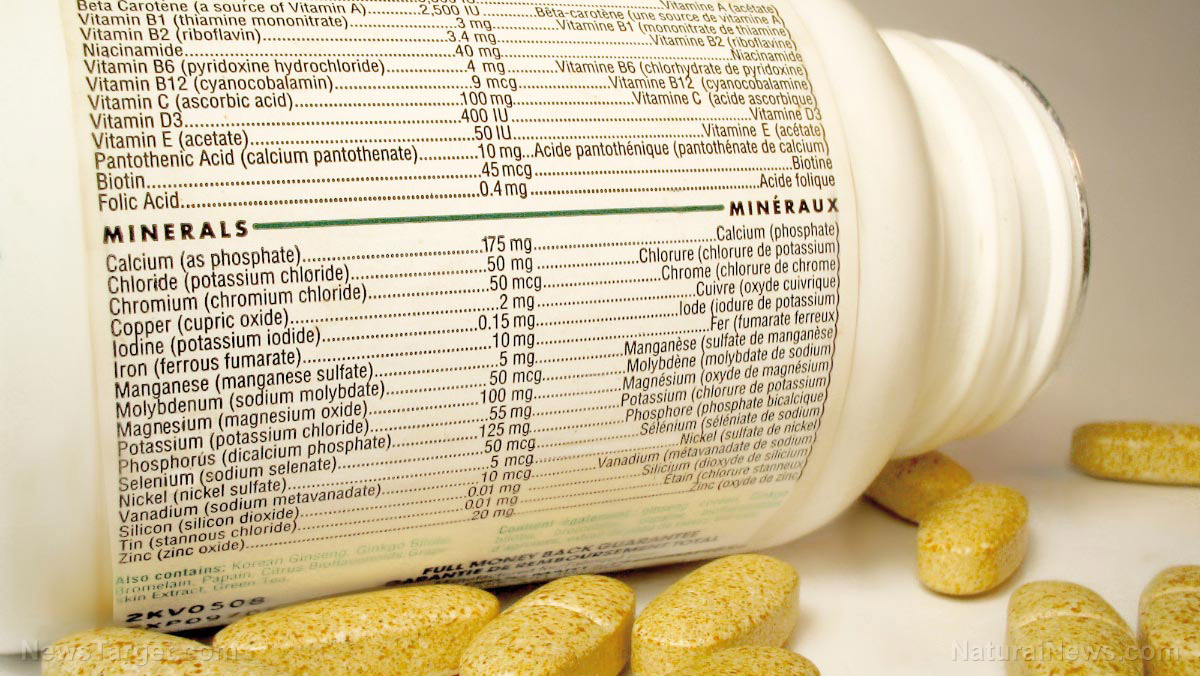Researchers: Treat liver cancer with the anti-inflammatory and immunoregulatory properties of vitamin D
03/02/2018 / By Michelle Simmons

Another benefit of vitamin D has been discovered. Vitamin D was found to be an effective treatment and prevention option for liver diseases and cancers, according to a new study.
A team of researchers from King Abdulaziz University and Qassim University in Saudi Arabia, National Brain Research Center in India, and SUNY Downstate Medical Center in the U.S. carried out a study on the potential of vitamin D as a treatment option for liver disorders and cancers. The research team conducted the study by reviewing past studies that looked at the associations of vitamin D, liver diseases, and liver cancer. They also looked at other therapies available for liver treatments.
The findings of the study, which were published in the journal Nutrition & Metabolism, revealed that the receptors of vitamin D and changes in gene expression play a significant role in the development of long-term liver disorders, such as chronic hepatitis C virus infection, liver fibrosis, and hepatic necroinflammation. In addition, the vitamin was found to influence the development of non-alcoholic fatty liver disease (NAFLD).
Past studies have shown that the lack of vitamin D in the body is a marker of health problems. Moreover, inflammation during disease could potentially be responsible for reduced amounts of vitamin D, which explains its decreased values in a variety of disorders. Also, vitamin D receptors are present in all tissues of the body that regulates the immune function and cell proliferation.
In conclusion, vitamin D can help prevent and treat liver diseases and cancers as it contains anti-inflammatory and immunoregulatory properties. The research team believes that it is important that healthcare experts raise awareness of the side effects of vitamin D deficiency. They also believe that appropriate guidelines to sun exposure and supplementation of vitamin D are needed. In addition, fortifying foods could be used to increase the intake of the vitamin and reduce the consequences of its deficiency.
More on vitamin D
Vitamin D, a fat-soluble vitamin, is naturally present in only a few number of foods and is available as a dietary supplement. The body also produces it as a response to sun exposure. It helps in maintaining healthy bones and teeth, supporting the health of the immune system, brain, and nervous system, regulating insulin levels and aid diabetes management, supporting respiratory and heart health, and influencing the expression of genes involved in cancer development. (Related: ‘Vitamin D Guide’ infographic explains importance of vitamin D for optimal health)
According to the National Institutes of Health (NIH), the recommended daily amount of vitamin D is 400 international units (IU) for children, individuals aged 14 to 70 years need 600 IU, and individuals older than 70 needs 800 IU.
On estimate, sensible sun exposure on bare skin for five to 10 minutes two to three times a week enables most people to produce adequate vitamin D. However, vitamin D breaks down quite rapidly, which means that the body can be in short supply, especially during winter. With this, vitamin D deficiency can also occur. Deficiency can also occur as a result of darker skin color or the use of sunscreen, which reduces the ability of the body to absorb the ultraviolet radiation B (UVB) rays from the sun needed to make the vitamin. Symptoms of vitamin D deficiency may include getting sick or infected more often, fatigue, painful bones and back, depressive mood, impaired wound healing, hair loss, and muscle pain.
If you’d like to read more news stories and studies on vitamin D, see VitaminD.news.
Sources include:
Tagged Under: anti-inflammatory, benefits, cancer, cancers, inflammation, Liver, liver disorders, nutrients, prevention, therapeutic, treatment, vitamin D




















